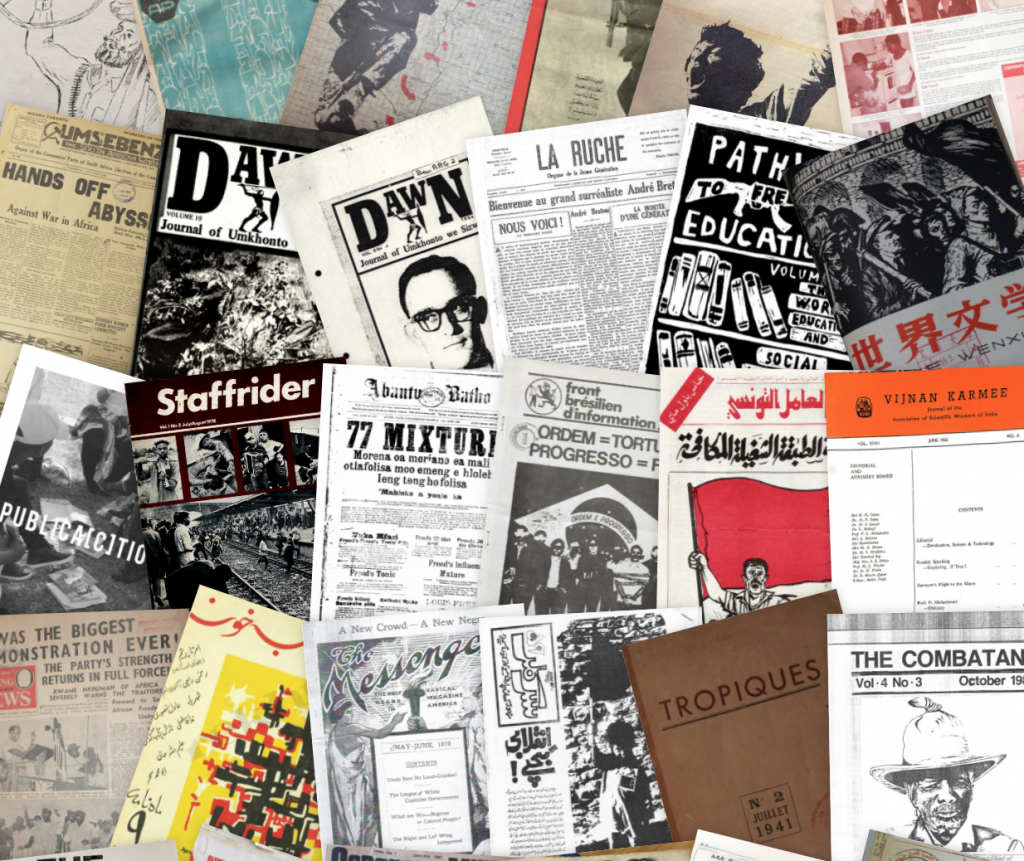Uncovering 'Revolutionary Papers' of decolonization movements

In today’s public discourse, the term decolonization has become disconnected from its own history—the tide of anticolonial liberation movements that transformed countries across the Global South and the entire world in the 20th century. This erasure has interrupted our understanding of the historical continuity of decolonization and side-lined the thought, culture, and labour of anticolonial organizations, intellectuals, artists, organizers, and communities across regions and continents. As Dr Mahvish Ahmad, co-founder of Revolutionary Papers initiative notes, ‘Revolutionary Papers’ was established to address this gap, to counter the notion that decolonization was invented in a university classroom in the West.
To this end, Revolutionary Papers highlights the rich periodicals archive of liberation movements, creating a space for researchers to reflect on various “left, anti-imperial, anti-colonial” newspapers, magazines, newsletters and other underrepresented forms of media from the 20th and 21st Century. The aim of Revolutionary papers is to bring attention to the interdisciplinary nature of magazines and newspapers, where editorials were often published alongside art, poetry, meeting minutes and the daily news.
‘Revolutionary papers’ was envisioned by myself, Dr Hana Morgenstern, an Associate Professor in Middle Eastern Literature at the University of Cambridge, and then Sociology PhD candidate, Dr Mahvish Ahmad. Inspired partially by Brown University’s Modernist Journals Project, we were struck by the great potential of an anticolonial magazine archive, which could help organize and highlight the vast quantity of decolonization-era periodicals, most of which had not been researched. When Mahvish joined the University of Western Cape (UWC) in South Africa, we utilized the opportunity provided by the Cambridge-Africa ALBORADA Research Fund to kickstart their project through preliminary research and community engagement, workshops, and a website. Soon after, we were joined by UWC historian Dr Koni Benson, broadening the expertise of the core team.
The ‘Revolutionary Papers’ website was launched in 2019, but the international conference planned for the same year was delayed because of the pandemic. During the lockdown period and in response to public online conversations, the team decided to branch out and experiment with designing open access tools to equip academics and organisations with digital educational resources on anticolonial and anti-imperial periodicals. We hoped not only to develop new analytic methods and pedagogies within academia, but to give the general public insight into how research was conducted, enabling them to engage in conversations around scholarship.
Revolutionary Papers’ long-anticipated conference was held in April 2022. What was initially envisioned as a small collection of interested academics gathered to discuss their research in Cape Town, blossomed into a large, international, and multi-generational gathering. Over 80 papers were submitted for discussion, and more than 150 people attended, ranging from students and young political activists to anti-apartheid movement leaders and veterans who had been incarcerated on Robben Island in the 1960s. This audience developed the conversation in ways we did not expect, with discussions on not only the content of the periodicals, but also the stories around them—fierce arguments between editors and party organizers, or the revelation that a whole magazine was launched by just one editor.
This year Revolution Papers is focusing on publishing and teaching tool collaborations that came out of conversations and networks developed at the conference. This includes a special issue coming out in the Duke University Press journal “Radical History Review” in 2024, the guest edited series for 'Africa is a Country', and development of some exciting collaborations with additional African libraries and archives. Our hope is that the evolution and growth of the project demonstrates the significance that these movements have to many people, both scholars and members of the community. We plan to continue producing research on anticolonial liberation movements, giving a more expansive and grounded perspective on the historical struggles of decolonization and reflecting on their manifestations in the present day.
By Dr Hana Morgenstern, a Lecturer in Postcolonial and Middle East Literature at Cambridge University and a Fellow at Newnham College.

